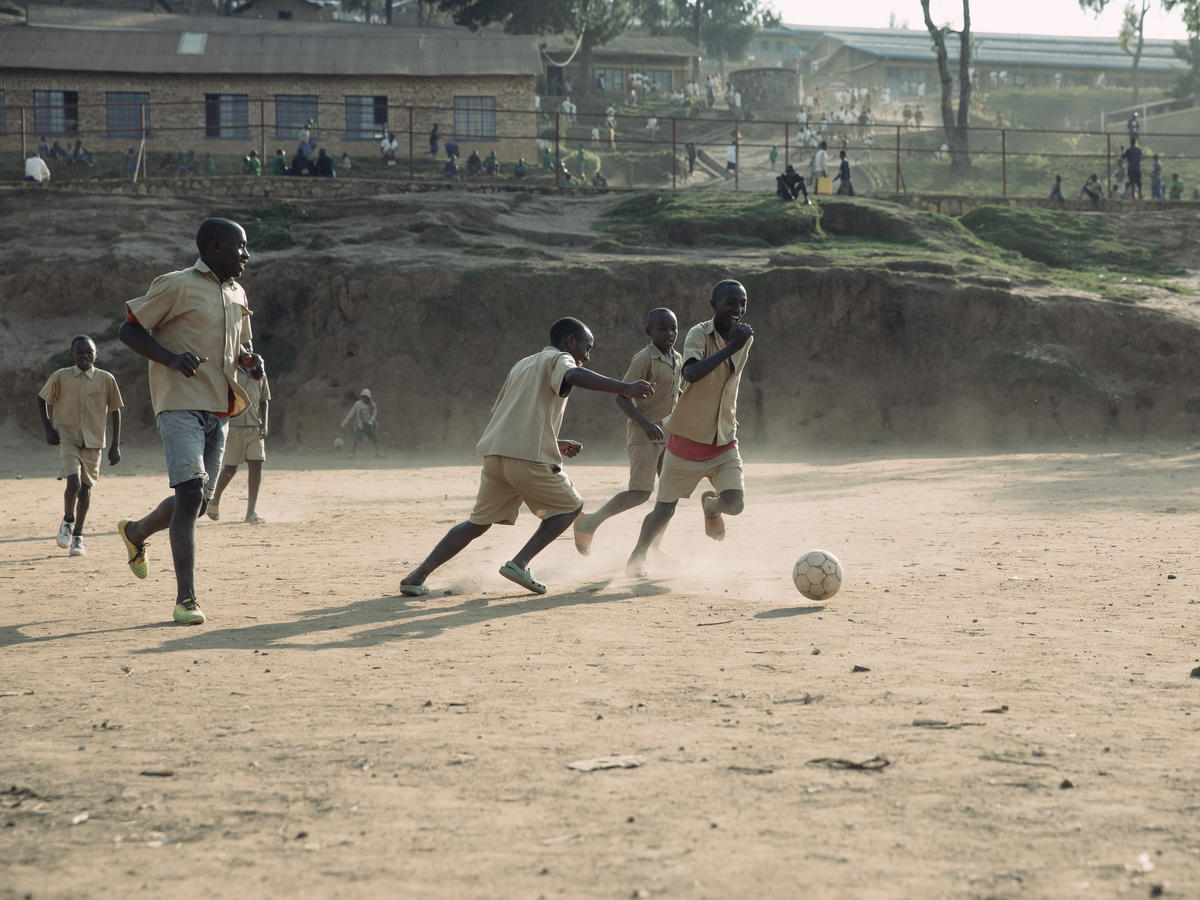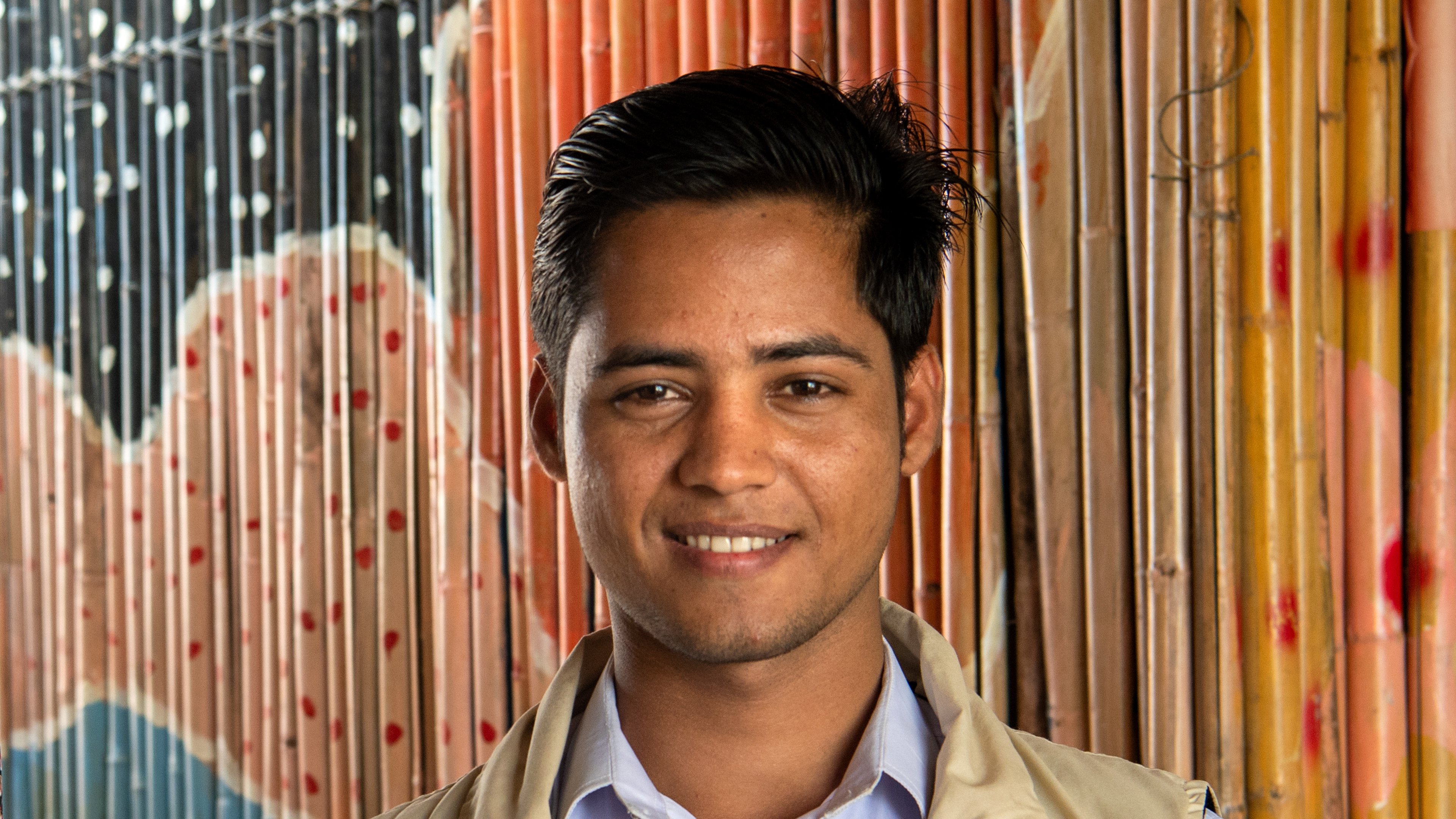Death of Palestinian boy highlights dangers at Iraq border refugee camp
Death of Palestinian boy highlights dangers at Iraq border refugee camp

DAMASCUS, Syria, September 10 (UNHCR) - The death of a nine-year-old boy in a road accident on the Iraq-Syria border has focused attention once more on the extremely dangerous and harsh living of hundreds of Palestinian refugees stranded at a makeshift desert camp.
The young refugee, Mohamed Kamal Ibrahim, was due to be resettled soon in Sweden with his family. He died late Tuesday afternoon in an ambulance headed for a hospital in the suburbs of Damascus after he was hit by a reversing truck in Al Tanf, a ragtag gathering of tents and makeshift shelters housing some 920 Palestinians, including 355 children, in the no man's land between Iraq and Syria.
"We hope there will be no other deaths and that we can get out of this [camp] as soon as possible," said one of the Al Tanf refugees, bitter about the death of Mohamed and the limbo that the Palestinians find themselves in.
"This is a terrible tragedy," said Laurens Jolles, UNHCR's representative in Syria. "The present area is not at all suited as a location for accommodation of hundreds of Palestinians. This proves once again how important it is to find a way to relocate this group to a more suitable area."
The Baghdad-Damascus highway runs right past the settlement on the Iraqi side and another child was killed by a vehicle on this road in 2006. Conditions within the camp are extremely tough; aside from sandstorms, fire risks and extremes of cold and heat, the area is infested by snakes and scorpions.
Many of the Palestinians, who cannot enter Syria unless in an emergency, suffer from severe trauma and a range of ailments, yet the nearest hospital in Iraq is 400 kilometres away while the nearest major medical facility in Syria is a distance of 270km from Al Tanf.
The UN refugee agency has repeatedly drawn attention to the lack of medical facilities, the precarious living conditions and the desperation in Al Tanf, which UNHCR says highlight the need for a humanitarian solution to be found for Palestinians trapped at the border after fleeing Baghdad.
Another nearby border camp in the desert area, Al Waleed, hosts an estimated 1,400 Palestinian refugees. UNHCR has repeatedly called for international support for the Palestinians in both camps, but with few results.
Few Palestinians in the border camps have been accepted for resettlement or offered shelter in third countries. Only some 300 Palestinians have gone to non-traditional resettlement countries such as Brazil and Chile. A group of 29 vulnerable women and children from Al Waleed arrived in Iceland on Tuesday this week to start new lives.
Some urgent medical cases were taken by a few European countries, but this is a very small proportion of the 2,300 Palestinians stranded in the desert.
UNHCR continues to advocate for alternative humane solutions in the hope that all of the Palestinians will be able to leave the harsh conditions of the camps. Their relocation would in no way jeopardize their right to return at any stage, if and when such a possibility arises.
By Dalia Al-Achi and Carole Lalève in Damascus, Syria








